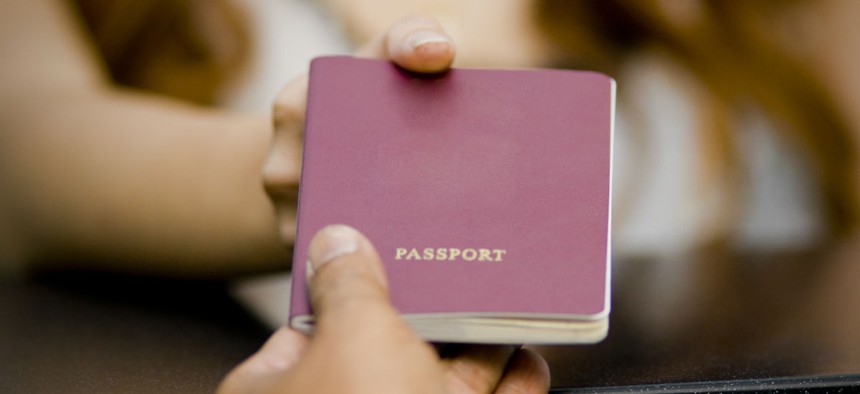
Apples Eyes Studio/Shutterstock.com
It Just Got Easier to Contest Inclusion on the No Fly List
For starters, DHS will now tell people if they’re on the list; ACLU says new procedures aren’t enough.
As part of an ongoing review of passengers’ rights to challenge the federal No-Fly List, the Justice Department is giving up some secrecy in the fight against terrorism.
In a filing Monday in District Court in Portland, Ore., acting Assistant Attorney General Benjamin Mizer established new procedures under which would-be flyers may obtain information to confirm and challenge their presence on the list.
Previously, individuals who had submitted inquiries to the Homeland Security Department’s Traveler Redress Inquiry Program (TRIP) “generally received a letter responding to their inquiry that Homeland Security Traveler Redress neither confirmed nor denied their No Fly status,” the brief said. Now, individuals who purchase tickets but are denied boarding will be informed of their status on the No Fly List after contacting TRIP. They’ll also be given the opportunity to submit or receive additional information related to their status.
If individuals denied boarding want more detail, DHS will provide a second letter containing an unclassified summary of the criterion used in the decision “to the extent feasible, consistent with the national security and law enforcement interests at stake.” A final determination will then be made by the Transportation Security Administration.
The issue arose in the civil case of Latif v. Holder, in which Ayman Latif, a U.S. Marine veteran, contested Homeland Security’s decision to bar him from a flight out of Egypt.
“After years of fighting in court for complete secrecy and losing, it’s good that the government is finally now going to tell people of their status on the No Fly List,” the plaintiff’s lead attorney, Hina Shamsi, director of the ACLU National Security Project, said in an email to Government Executive. “Unfortunately, we’ve found that the government’s new redress process falls far short of constitutional requirements because it denies our clients meaningful notice, evidence, and a hearing. The government had an opportunity to come up with a fair process but failed, so we’re challenging it in court again.”
A Homeland Security spokeswoman said in an email that “The U.S. government is committed to ensuring the safety and security of the traveling public, while continuing to safeguard the privacy and civil liberties of all Americans.” The new “enhancements” to the TRIP program “continue to ensure that individuals who are deemed to be a threat to our aviation security are prohibited from boarding a flight within, or bound for, the United States.”
The TRIP program, DHS has noted, can be a helpful resource to travelers who believe they have been unfairly or incorrectly delayed at transportation hubs. It can resolve inconveniences for travelers by updating information in government records and by providing a control number designed to prevent travelers from being misidentified if their name is similar to the name of a person on a watchlist.
(Image via Apples Eyes Studio/Shutterstock.com)







